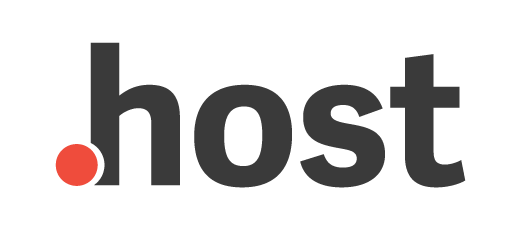What do you need to know about the H1B visa for U.S. work visa
The H1B Introduction Visa
The H1B visa is among of the most sought-after work visas for foreign workers who want to live in the United States. It allows U.S. companies to employ foreign workers in specialty occupations that require expertise in technical fields, such as IT, engineering and healthcare. The H1B visa is a vital part of the U.S. economic system, since it helps bridge the gap in talent across different industries by bringing highly skilled professionals from all over the world.
The History and the Evolution of H1B Visa
The H1B visa was first implemented as a result of the Immigration and Nationality Act of 1952, which created an immigration-free visa category for temporary workers. The H1B program underwent several changes over the years to accommodate changing requirements in the U.S. employment market and economy. The reforms have focused around tightening the eligibility requirements as well as raising the cap on visas and addressing concerns about the impact H1B workers will have on U.S. job opportunities.
Eligibility Criteria for H1B Visa
To be eligible to obtain an H1B license applicants must satisfy certain conditions. In the first place, applicants must have an U.S. job offer for a role which qualifies as “specialty occupation.” This means that the position typically requires a bachelor’s degree or an equivalent degree in a closely related area. Furthermore, the candidate’s qualifications and experience must match the job. Specialty occupations that are included in the H1B Visa are engineering mathematics, IT physical science, healthcare, and various other fields.
The H1B Visa Application Process
Applying for an H1B visa is a complicated process that involves several steps. Here is a breakdown.
-
Employer’s job: The process begins by the U.S. employer submitting a Labor Condition Application (LCA) to the Department of Labor (DOL). This document ensures that the foreign worker is paid a wage that is at least equal to the wage that is currently in force for the job.
-
Making a Petition Following the LCA approval The employer must submit Form I129 (Petition of a Nonimmigrant Worker) to the U.S. Citizenship and Immigration Services.
-
Visa Lottery. Due to the high demand H1B
Visas have an annual limit that leads to a lottery. If your application is selected by the lottery, you’ll continue the processing.
-
Visa Approval Following approval, the applicant must apply to an embassy or consulate of the US in their home country to obtain the H1B. After approval, they are able to travel to the U.S. and begin working.
The H1B Visa Cap
There is a limit per year for H1B visas, which limits the number of visas issued. The cap currently stands at 65,000 visas. An additional 20,000 visas are available for those who hold at least a master’s degree from an American university. This limit creates being a lottery system because the number of visas available is higher than the number of applicants. Certain employers like higher educational institutions and non-profit research groups are exempt from.
Benefits of the H1B Visa
The H1B provides a variety of benefits to both visa holders, as well their employers. Many people use it as a path to permanent residence within the U.S., often leading to the Green Card. Additionally, the visa offers opportunities for professional development which allows people to pursue careers in their field of expertise in one of the largest economies in the world. The H4 is also available to family members of H1B-visa holders. H4 visas are utilized by relatives of theirs within the U.S. and in certain circumstances, they may be eligible for employment authorization.
The H1B Visa The H1B Visa: Challenges and Controversies
The H1B Visa Program has attracted significant controversy and debate despite the numerous benefits. Critics claim that the H1B visa program can cause removal of American workers, particularly in the field of technology. Some companies are accused of exploiting H1B employees by offering lower pay or working conditions that were not suitable for them. In addition, the political climate and policy changes can greatly affect the H1B program, creating uncertainty for both employers and visa holders.
Renewal and Extensions for H1B Visa
An H1B Visa is initially granted for up to three-years, but can be extended by an additional three years, bringing the total time of stay up to a period of six years. In order to apply for an extension, the employer has to file a new petition with the USCIS before the current visa runs out. If the applicant is seeking the Green Card then they are more likely to get an extension. However, it’s vital that you know the conditions and timelines for renewing the visa.
Transitioning H1B to Permanent Residence
For many holders of the H1B Visa, the main goal is to gain permanent residency in the U.S. This process is also known as getting an Green Card. It involves various steps like PERM labor certifications, the filing of petitions for immigrants and the adjustment of one’s status. The process can be complicated and lengthy, requiring many years due to the backlog and quotas specific to each country. But, if you are able to successfully navigate this process could lead to permanent residency and, eventually, U.S. citizenship.
Alternatives to H1B Visa
While the H1B visa is well-known, it’s not the only option for professionals from abroad who want to get a job in the U.S. Alternatives include
- L1 visa is for intra-company transferees who are managers or executives.
- O-1 visa: for individuals who are exceptional in their field.
- E-2 Visa for investors who are from countries that have signed treaties.
They could be a better match depending on the person’s personal circumstances and career objectives.
The impact of the H1B Visa on U.S. Companies
U.S. companies, particularly in the technology industry, greatly benefit from the H1B visa program. It allows them to access the world’s workforce, able to fill critical roles that are often difficult to staff locally. H1B visa holders contribute significantly to research, innovation, and overall competitiveness for U.S. businesses. Their contributions create an impact that ripples that leads to the creation of jobs and economic growth across a variety of sectors.
Recent Changes and Future Outlooks for H1B Visa
The H1B visa program is continuously changing, with the last few years seeing significant changes in policies and administration. As an example, changes to the process for reviewing applications as well as the amount of caps and the changes to the selection criteria have all affected the way the program is run. As for the future, subject to the political climate the program will likely undergo changes to the program in the future. Discussions regarding increasing the cap or altering the lottery are currently ongoing.
The Most Common Myths and Misconceptions About the H1B Visa
There are many misconceptions about H1B visas. Some people think that H1B immigrants are stealing jobs from Americans. However, studies have shown that they fill a variety of jobs that would otherwise be unfilled. A second myth is that H1B visa holders are paid a low wage. However, employers must pay them the current wage, which is set by the DOL. Many people think that only tech professionals can obtain H1B visas. However, many other professions are also qualified.
Success Stories of Holders of the H1B Visa
A lot of successful professionals have relied on the H1B as a stepping stone to success. They’ve made substantial contributions in both the U.S. Economy and the Society. Sundar Pichai was the CEO of Alphabet Inc. and the parent company of Google and Google, who began his career in America on an H1B visa. The H1B visa is a great opportunity for foreign workers to develop and achieve success.
Conclusion
The H1B remains an integral part of U.S. migration system. It provides opportunities for professionals with the skills to contribute to U.S. economic growth while pursuing career goals. It is essential to those who are considering the H1B pathway to understand the process, the advantages as well as the difficulties. The program is likely to change, and both the applicants and businesses must stay updated on the changes.
FAQs
-
Are there any chances to obtain an H1B?
- The odds depend on a variety of variables, such as the annual cap as well as the lottery system. The lottery is usually only chosen for a quarter of applicants.
-
Can H1B Visa holders bring relatives members along?- Yes, spouses of H1B visa-holders are able to bring children who are not married less than 21 years old into the U.S. with H4 visas.
-
What is the longest stay you can enjoy within the U.S. if you hold an H1B?
- An H1B visa initially valid for a period of three years, and the possibility exists of extending it by another three years, making the maximum stay six years.
-
What happens if I lose my H1B position while I’m working?
- If you are fired, you have the grace period of 60 days to locate a new company to sponsor your H1B visa, or alter your status.
-
Do H1B visa holders be eligible for a Green Card?
- Yes H1B visa holders may apply for a Green Card through employment-based immigration categories, even though the process may take a long time.




